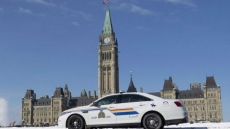OTTAWA — The federal budget watchdog says in the coming years increasingly indebted households are poised to become the most financially vulnerable Canadians in decades.
The parliamentary budget office released a report Tuesday predicting the ratio of debt payments — including principal and interest payments — relative to disposable income will creep upwards over the next five years as interest rates rise.
The office projects that by the end of 2020, this ratio will increase to 15.9 per cent of disposable income from its late 2015 level of 14.1 per cent.
"Household debt-servicing capacity will become stretched further as interest rates rise to 'normal' levels over the next five years," the report said.
"Based on PBO's projection, the financial vulnerability of the average household would rise to levels beyond historical experience."
The increase would mean households would be even more vulnerable to negative shocks to their income or to interest rates, which could also have an adverse effect on financial institutions.
The budget office said the ratio's highest level over the past 25 years was 14.9 per cent — a mark reached in late 2007.
Since 1991, the report said the total financial obligations of households has broken down, on average, in the following way: mortgage debt has represented 63 per cent of all debt, consumer credit 29 per cent and other loans eight per cent.
Over that period, household debt has increased each quarter, on average, by almost seven per cent on a year-over-year basis, the document said.
The budget office also noted that indebtedness has continued to edge higher in Canada, which has seen the largest increase in household debt relative to income of any G7 country since 2000.
Household debt loads have climbed during an era of low interest rates. The budget office said the effective household borrowing rate — which the Bank of Canada describes as a weighted average of interest rates on various mortgage and consumer loans — declined to 3.1 per cent in December from 6.7 per cent in January 1999.
The Bank of Canada has pointed to the potential hazards linked to high household debt — particularly if the country were hit by a severe recession or a prolonged period of increasing unemployment.

But the central bank has argued that the likelihood of household debt levels becoming a serious problem remains low and the situation is likely to improve once the economy starts to recover.
The bank has said there's been little evidence of significant increases in delinquency rates.
Still, the Bank of Canada has described the country's mounting household debt level as the most important vulnerability in the financial system's armour — and this susceptibility has continued to grow.
Governor Stephen Poloz has said the weak spot is concentrated among 720,000 households that could struggle to make debt payments in a significant economic downturn.
The bank has found that the proportion of households holding debt higher than 350 per cent of their gross income — a high-risk category — has doubled to about eight per cent since the 2008 financial crisis.
People in this situation tend to be younger Canadians under 45 years old who usually earn less money. Poloz has said they are part of "emerging pockets of concern."
On Tuesday, the budget office highlighted findings from 2012 Bank of Canada research that revealed that households headed by an individual aged 31 to 35 years old held the highest levels of debt.
That research also found that debt levels decreased steadily as the age of the person heading the household increased.




